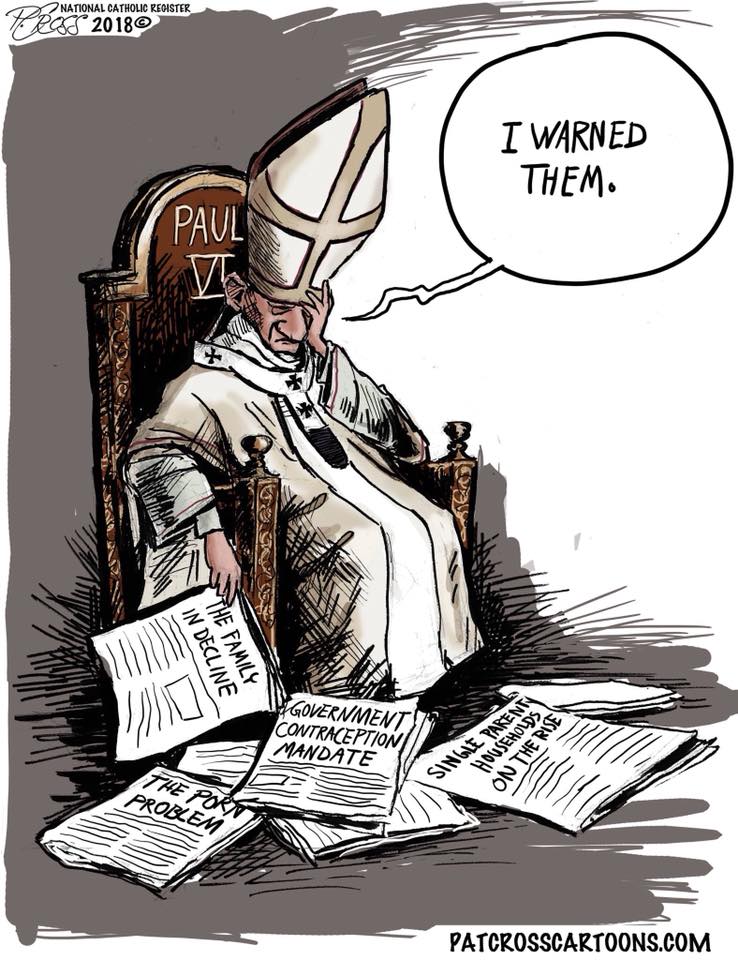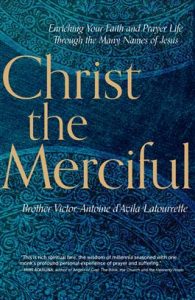
Today is the 51st anniversary of Pope Saint Paul VI’s landmark encyclical, Humanae vitae .

Today is the 51st anniversary of Pope Saint Paul VI’s landmark encyclical, Humanae vitae .
![]() We can catch a glimpse of the Spirit of Christmas as we savor the fellowship enjoyed by our families whose members gather from far and wide to be together for our Christmas Eve Holy Supper. And yet, such fellowship is but a shadow of that divine fellowship enjoyed by all mankind as a result of the Birth of the Second Person of the Most Holy Trinity. “To all who did accept Him He gave power to become Children of God” (Jn. 1:12) indicates a radical change which this divine fellowship entails: God became human so that human beings might become like unto God.
We can catch a glimpse of the Spirit of Christmas as we savor the fellowship enjoyed by our families whose members gather from far and wide to be together for our Christmas Eve Holy Supper. And yet, such fellowship is but a shadow of that divine fellowship enjoyed by all mankind as a result of the Birth of the Second Person of the Most Holy Trinity. “To all who did accept Him He gave power to become Children of God” (Jn. 1:12) indicates a radical change which this divine fellowship entails: God became human so that human beings might become like unto God.
Therefore, the celebration of Christmas ought to raise certain questions for each one of us. How is my personal life affected? How does the Christmas Event relate to our society with all its challenges? If we travel mentally around the world, what do we see? Violence of all sorts, physical and sexual abuse, violation of the rights of the unborn and defenseless, unconcern for the poor and migrant, abandonment of children and the elderly, the unjust aggressions suffered by Ukraine, the horrific massacres in the Middle East and Africa, are a fraction of our society’s illness which should cause us to wonder if the story of Christmas will ever succeed in getting across to all people its principal message. That message is simply that the salvation of each of us must be through love and in love. This fantastic message of Christmas is, for very many, the greatest secret still yet to be fathomed: God’s love for all has been revealed in the Word made flesh!
The US Ukrainian Catholic Bishops
Christmas Letter 2016, excerpts
 Brother Victor-Antoine d’Avila-Latourrette explores the absolute centrality of Christ in the prayer life of any Christian. The end result is a comprehensive confession of his faith and testimony to the many “names of Christ” that cross through historical, monastic, and mystical traditions. Keeping true to the hope for a unified Church, Christ the Merciful incorporates both Western and Eastern Orthodox sources.
Brother Victor-Antoine d’Avila-Latourrette explores the absolute centrality of Christ in the prayer life of any Christian. The end result is a comprehensive confession of his faith and testimony to the many “names of Christ” that cross through historical, monastic, and mystical traditions. Keeping true to the hope for a unified Church, Christ the Merciful incorporates both Western and Eastern Orthodox sources.
Chapters situating Christ in context of his life in Palestine, his role as a son, friend, and family member, and his place in the living history of the church all help to create a full, well-rounded portrait of his divine and human lives. By viewing Christ through these various facets, the book helps readers enrich their relationship to the mystery of God, adding contour to their spiritual journey.
Brother Victor-Antoine makes difficult concepts clear in a straightforward manner, informed by years of Benedictine monastic practice.